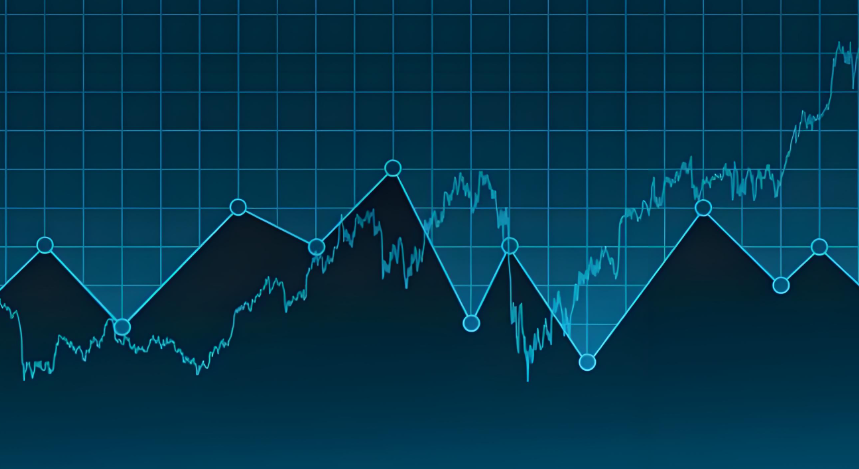US Inflation to Ease by 2025
Advertisements
In the heart of America's financial consciousness, the role of inflation continues to command attention, particularly with economists trying to chart a path forward in a constantly shifting landscape. One key figure in this dialogue is Austan Goolsbee, the President of the Chicago Federal Reserve Bank. Speaking recently at the Wisconsin Bankers Association's Economic Outlook Forum for the Midwest in 2025, Goolsbee revealed his optimism that inflation rates would continue to decline through the year, albeit alongside a cautionary note regarding the uncertainties that could affect this trajectory.
Goolsbee's remarks come at a pivotal moment when inflation has become a watchword in economic discussions. Holding steadfast to a long-term perspective on inflation’s trajectory, he emphasized the significance of interpreting data over months rather than getting bogged down by the "noise" of single-month fluctuations. “I still see continued progress,” Goolsbee noted, underscoring the importance of maintaining a broader viewpoint to gauge economic health. In a landscape where short-term information can be volatile, he advocated for a focus on consistent trends over time, recognizing that sustained patterns in the data could indicate genuine improvements to inflation rates.

The Chicago Fed President was unapologetically candid in identifying various intricate factors that culminate in inflationary uncertainty. Adjustments in fiscal policy, such as changes in government spending or tax strategies, play a crucial role in steering the macroeconomic environment, impacting supply and demand dynamics, monetary circulation, and ultimately, inflation. Beyond fiscal concerns, global issues loom large as well; geopolitical events, like regional conflicts or alterations in trade agreements, throw more uncertainty into the global supply chain, substantially influencing prices. Moreover, broader economic indicators, such as labor market vitality and corporate profit margins, contribute a complex background that must be understood holistically to predict inflation accurately.
Even with the consumer price index in December reflecting an annual increase of 2.9%, outstripping economists' forecasts and widening from November’s numbers, a deeper analysis reveals that this spike was primarily driven by volatility in energy prices. In contrast, the core Consumer Price Index (CPI), which strips away the more volatile food and energy categories, increased merely by 3.2% compared to the same month the previous year. This figure not only fell short of November's increase but also came in beneath market expectations, suggesting that what may appear as significant inflationary pressure on the surface may not be as alarming when volatility is accounted for.
The Federal Reserve has long maintained a 2% growth target for annual increases in the personal consumption expenditures price index, a figure that is instrumental in anchoring expectations for stable economic growth. Goolsbee's particular focus on service and housing prices sheds light on the post-pandemic economic adjustments that have brought product prices back in line with pre-COVID inflation levels. Despite lingering high prices in the services sector, there are indications that the pace of increases is beginning to moderate.
“One of the most significant challenges we've faced over recent years has been the unusually high inflation within the housing market that far exceeds levels seen prior to the pandemic,” Goolsbee articulated. His comments reflected a cautious optimism as he recognized the gradual improvements in housing inflation noted in the months preceding his remarks.
However, he emphasized that shifts in housing prices tend to lag. The typical rental contract refreshes annually, implying that adjustments to rental pricing are often slow to materialize. Add to this, the rate of home sales is currently subdued, further exacerbating the sluggish nature of housing price changes. Most critically, Goolsbee pointed out that the Fed's ability to directly influence housing supply is limited. Even with its broad regulatory tools across various economic sectors, boosting housing availability directly poses a unique challenge. At present, housing shortages have surfaced as a fundamental issue across many parts of the United States.
To provide a vivid analogy regarding the Fed's options, Goolsbee likened its approach to an essential, yet limited, tool. “The Federal Reserve has but one tool—interest rate adjustments,” he remarked. “It’s like a screwdriver; it's effective when your dishwasher’s handle is loose, but when it comes to making breakfast, it may not be as useful.” This analogy captures the essence of the Fed’s constraints when addressing complex economic dynamics.
Having ascended to his role as President of the Chicago Federal Reserve in 2023 and serving as a voting member of the Federal Open Market Committee this year, Goolsbee refrained from discussing the specific impacts of the incoming government's policies on economic growth or inflation. He argued that while fiscal policy should be observed, it ought to serve merely as a data point for the Fed’s decision-making regarding interest rates.
A midwestern adage quoted by Goolsbee—"There's no bad weather, only bad clothes"—epitomizes his perspective on understanding fiscal policy. He elaborated, “You tell me how the weather is, and I’ll tell you what coat to wear. In my view, the Fed’s approach to fiscal policy should mirror this—acknowledge the existing conditions and assess the potential scenarios that could impact employment or prices.
As the financial markets view the upcoming Fed meeting on January 28-29, the futures market indicates that the likelihood of a rate cut remains below 3%. General sentiment signals that there may be only a solitary 25-basis-point decrease in 2025.
Despite the fluctuations in inflation data and market trends, Goolsbee conveyed a reassuring message about his confidence in the future economic outlook while also stressing the necessity of prudent caution in the face of uncertainty.
Leave Your Comment